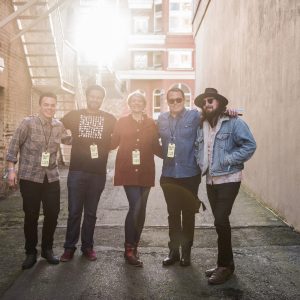
 Everett may not have Seattle’s skyscrapers and big city appeal, but it does have a down-to-earth vibe, a primo spot next to the Puget Sound and (much) cheaper drinks. It also has the Fisherman’s Village Music Festival, a multi-day festival going on its sixth year and making waves.
Everett may not have Seattle’s skyscrapers and big city appeal, but it does have a down-to-earth vibe, a primo spot next to the Puget Sound and (much) cheaper drinks. It also has the Fisherman’s Village Music Festival, a multi-day festival going on its sixth year and making waves.
It was just featured in this Seattle Magazine piece as a top thing to do in May and it’s sponsored by KEXP.
(Already convinced? Get tickets now, it’s only a few weeks away). The 2019 lineup features big acts, such as Wolf Parade, local rapper Travis Thompson, and Laura Veirs.
Patrick from Brown Paper Tickets sat down with Ryan Crowther to find out more.
Ryan, let’s get down to it man. How’d you get into organizing events?
Ryan Crowther: I started a job in 2008 at the Economic Development Council of Snohomish County. In that work you learn a lot about government, business, community, and how they all interact. Economic development is really connecting those three things to build the economy.
I noticed a strong lack of nightlife, live music, cultural arts, and connectivity between the arts community (in Everett). I thought, ‘you know what, why don’t we just start throwing a show a month?’ so me and a colleague that I used to work with mapped out on a white board and basically came up with this idea.
The three main goals for Everett Music Initiative were to build resources for local musicians, build awareness of Everett as a location for touring artists, and have one weekend where the entire region looked to Everett for music—that was Fisherman’s Village Music Festival.
You started Everett Music Initiative. What were the early days like? Was it a struggle or successful right away?
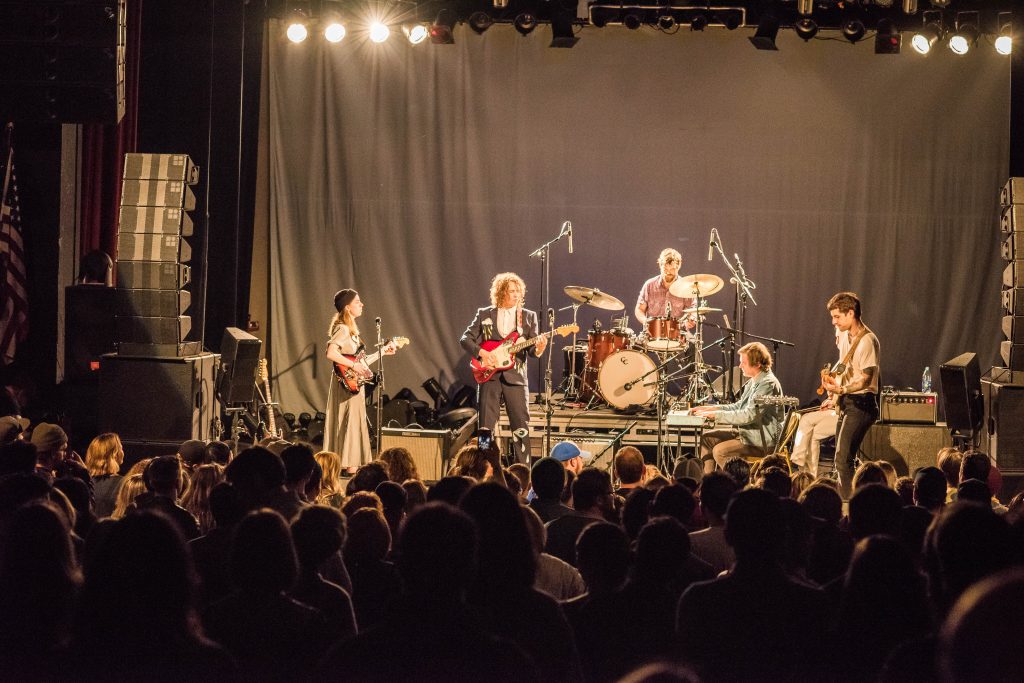
Ryan Crowther: I think everyone involved could tell that even though it started small, it was really special. It was special, but it was a really slow grow. I remember the first three or four shows we did; it was like 40-60 people and that was OK, you know.
So, when you started trying to grow it, what were some of the biggest challenges you faced?
Ryan Crowther: Literally everything. I didn’t really have a show promoting background, I’m a publicist by trade, but doing music was a whole new industry for me. Little things all adding up to make producing these events pretty challenging, but we got really resourceful and I think that’s when we realized that we had a community behind us, and we started seeing the community step up to help make these events happen.
The birth of Fisherman’s Village Music Festival, let’s talk about that. How did you get started?
Ryan Crowther: We had a goal and that was to make everyone look at Everett for an entire weekend, but we weren’t really sure when to do it. So, one day I just started mapping it out. Everett didn’t really have a cohesive sort of brand or identity. So, to me the fact that it was a city on the sea was the Fisherman’s Village concept, so people could picture it without knowing about Everett.
Cool, so you started with a brand, model, and the concept. What was the first one like?
Ryan Crowther: It was built a little too large and had too many artists going at one time, too many venues. But at the end of the day, it had its moments and you could tell we were onto something.
Flash forward and segue into this year, what have you re-calibrated and what kinds of changes are in store?
Ryan Crowther: The next step is spreading the awareness and visibility that this is a large special weekend of emerging talent from all over the country in the Puget Sound region. We’re building something that’s a lot like other music festivals, but its own thing at the same time. Alaska Airlines is an official partner this year, which is really exciting. We are combining our artist merch tent with Sub-Pop. We’ve got really great support from Suicide Squeeze, KEXP is co-presenting and has written about it on their blog. To get that sort of attention certainly feels good, but I think it also provides us the credibility we can’t really communicate ourselves.
If you had some wisdom to share about marketing something like Fisherman’s Village Music Festival for a new organizer what would it be?
Ryan Crowther: Hmm… number one would be to find credible partners, so you aren’t out on a limb on your own. It’s a big deal to have because their support convinces people that your event is worth coming to and that’s critical.
It took you a few years to get to where you are, was it persistence that got those sponsors?
Ryan Crowther: Persistence yeah, but we also got Pabst Blue Ribbon our first year which just shows that brands are ready to hop on. Sponsors gave us credibility we couldn’t buy and that’s really important. The second piece of advice I have is to develop a strong social media platform and really drum up as much media as possible. Talk with local writers, major media partners in large cities near you, make sure that you are reaching out and getting any kind of coverage you can each year and it will grow.
How would you land a big-name sponsor like PBR?
Ryan Crowther: The first thing you have to do is create what your value is. Usually that is done via a slide deck where you talk about how many people you can really prove are going to come to the festival or event, what your social reach and online reach you will have as a brand, how much client or customer interaction you can provide to the potential sponsoring brand when they are onsite. Do it in a way that’s honest, engaging, and make sure it’s well presented, then find the right person to pitch. Just try and get them on the phone or find them in person, don’t just send an email and give up if they don’t respond.
Do you have anything to say about your experience with Brown Paper Tickets?
Ryan Crowther: When you are working with any vendor on a festival the best thing you can do for yourself and your event is to create relationships. You and Brown Paper Tickets have been responsive, supportive, and the fact that you are here in person taking interest in our festival is a perfect example of the kind of support that Brown Paper Tickets gives to event producers like me.
Get your tickets to the Fisherman’s Village Music Festival.
Music >

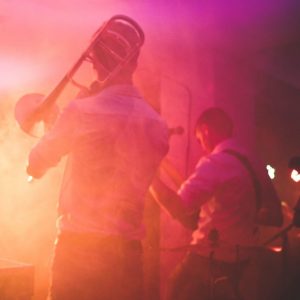
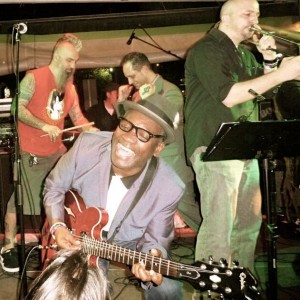
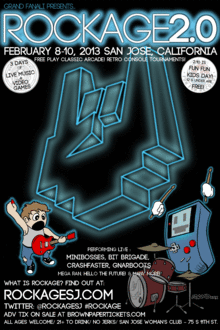
 Arts
Arts Comedy
Comedy Event Tips
Event Tips Film
Film Food & Drink
Food & Drink Good Causes
Good Causes Music
Music News
News Radio
Radio Roller Derby
Roller Derby